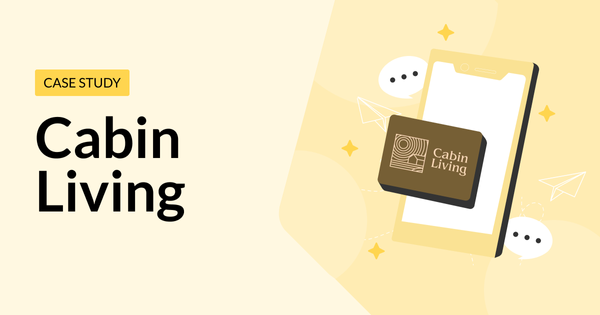Airbnb Canada: How to Get Started

Thinking about starting an Airbnb business up there in the great white North? It can be as scary as it is exciting, especially when you get down to the details. But that shouldn’t hold you back.
From listing descriptions to legal requirements, there’s a lot to consider when setting up a vacation rental in Canada. Add to that the tax implications and becoming a Canadian Airbnb host can quickly snowball into a daunting undertaking.
To help prevent you from feeling snowed under, here are the most important considerations for operating vacation rentals in Canada. If you’re thinking about skipping this article and figuring it out as you go along, keep in mind that not adhering to these regulations can result in significant fines or loss of rental income.
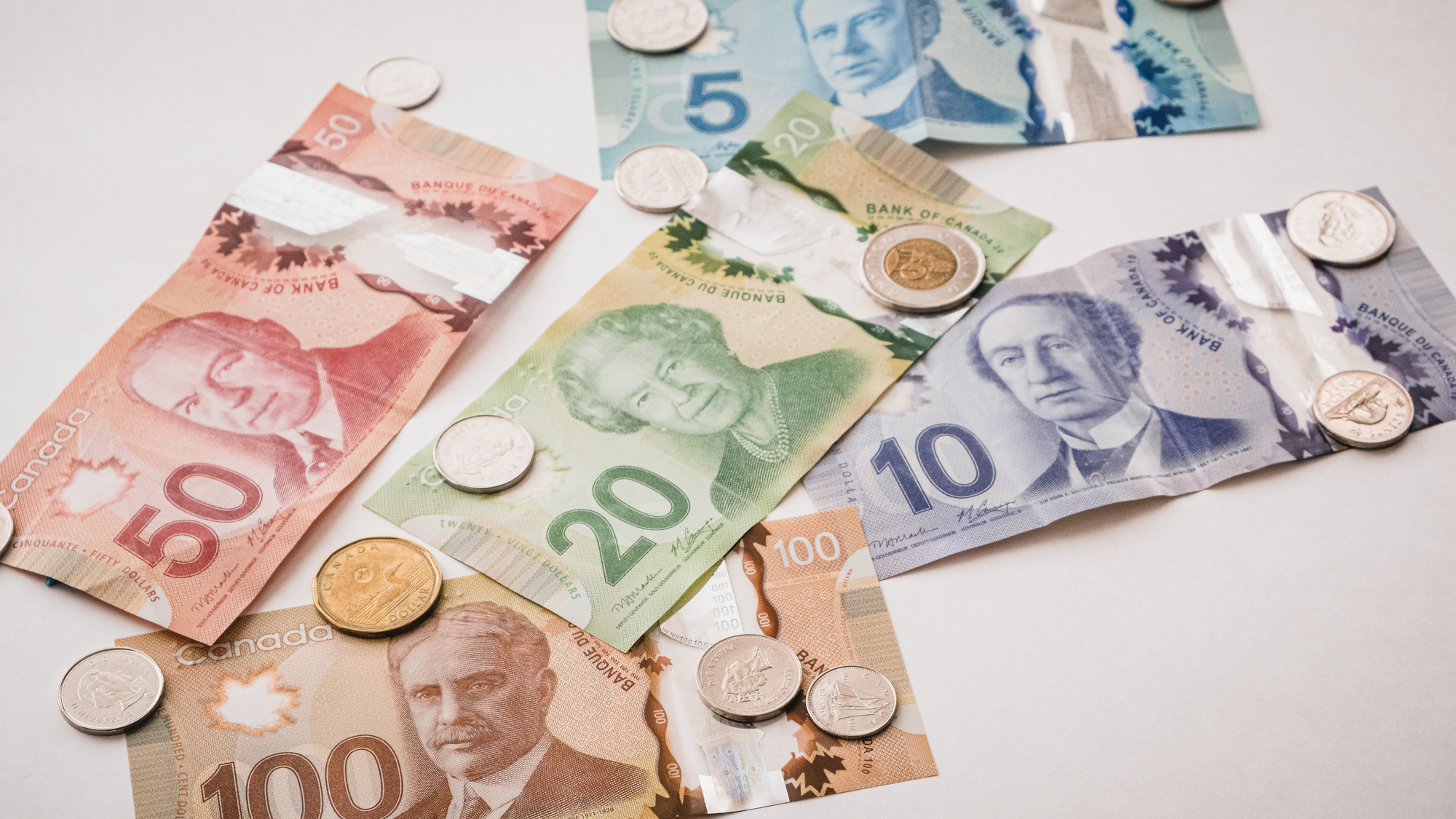
Tax Considerations for Airbnbs in Canada
Understanding how your vacation rentals will be taxed is a taxing affair. There are several circumstances that can impact your tax responsibilities. As such, it’s always best to consult with a tax practitioner who’s familiar with how Airbnbs in Canada work. You can also consult the Canada Revenue Agency for help.
Getting Familiar with the Basics
Each of the provinces and territories in Canada as well as the federal government will impose an income tax. Usually, the provincial income tax doesn’t get deducted from the federal income tax and is an extra expense.
Most of the time, the deadline for income tax returns in Canada is April 30 of the next year. Canada uses a self-assessment system, meaning it’s the host’s responsibility to file and pay taxes due on time. Hosts will usually have to complete Form T776 to declare any income earned from property rentals.
If you miss this deadline, you can incur interest and/or penalties.
If you reside in Quebec or your vacation rental is located here, there will be extra filing requirements to keep in mind. Guests who book a property located in this province will also incur Quebec Sales Tax (QST). This lodging tax amounts to about 3.5% of the listing price for reservations that are shorter than a month.
Guests will also pay sales tax like Goods and Services Tax (GST) and Harmonized Sales Tax (HST) when they book an Airbnb vacation rental in Canada. Depending on where the listing is located, these additional taxes can range anything from 2% to 8%. However, these taxes won’t apply if the stay is for longer than a month.
A number of local and provincial jurisdictions also charge extra taxes on accommodation. In some cases, Airbnb might collect and remit it. Your local municipality will be able to tell you if extra taxes apply and which party is responsible for collecting and remitting it.
Registered hosts will be responsible for collecting GST, HST, and QST tax. This means they’ll need to keep these amounts in mind when setting their nightly rate. For unregistered listings, this tax collection obligation will fall on Airbnb.
As Airbnb might have a responsibility to report the income that Canadian hosts have earned to the relevant tax authorities, it’s key to ensure that your annual income tax return matches Airbnb’s information. If the numbers don’t add up, tax authorities could question you.
If you offer extra services like meals, security, or cleaning, it can be regarded that you’re, in fact, running an Airbnb business. In this case, it will be classified as income from a business (in other words, self-employment income), instead of a passive income that’s generated from a property. This can have an impact on your taxes as property and business income are allocated differently.
You’ll also be able to deduct certain expenses that allow you to generate a rental income from your tax. These include expenses such as insurance, property taxes, and utilities. Though, if you rent out only a room, you’ll have to divide generic expenses like utilities in a way that’s fair.
General Legal Considerations for Airbnbs in Canada
Just like with other countries, it’s key that you first determine if you’re allowed to rent out your property on a platform like Airbnb. It’s best to consult a qualified lawyer and/or the local authority for more info about community rules and other regulations and restrictions.
Here’s general information about hosting regulations and permissions about Airbnb Canada to help ensure you’re a responsible host:
- If your Airbnb in Canada is mortgaged, you need to check in with the financial institution first. It could be that the lender restricts hosting or subletting.
- If you live in a subsidized housing community, you might require permission before you sublet the property. This is generally the case. Your housing association or housing authority will be able to give you more details.
- Hosts who won’t be listing the entire place will first need to check with their other housemates if they have any objections. It’s recommended that you create a formal written agreement in which you cover expectations and set out other finer details.
Similarly to the tax obligations, the short-term rental regulations also differ from one city to the next. What’s more, in some big cities the rules are quite strict.
For example, in Vancouver, British Columbia, vacation rentals are only permitted if it’s an entire home (or a room within this property) and it’s classified as your primary residence. A basement suite or secondary home can only be rented out short-term if it’s your principal residence and you reside there full-time.
In Toronto, Ontario, the rules are similar. Short-term renting is only allowed if the listing is the principal residence of the host. What’s more, hosts will first need to register with the city. Their listing’s registration number should be posted on their listing.
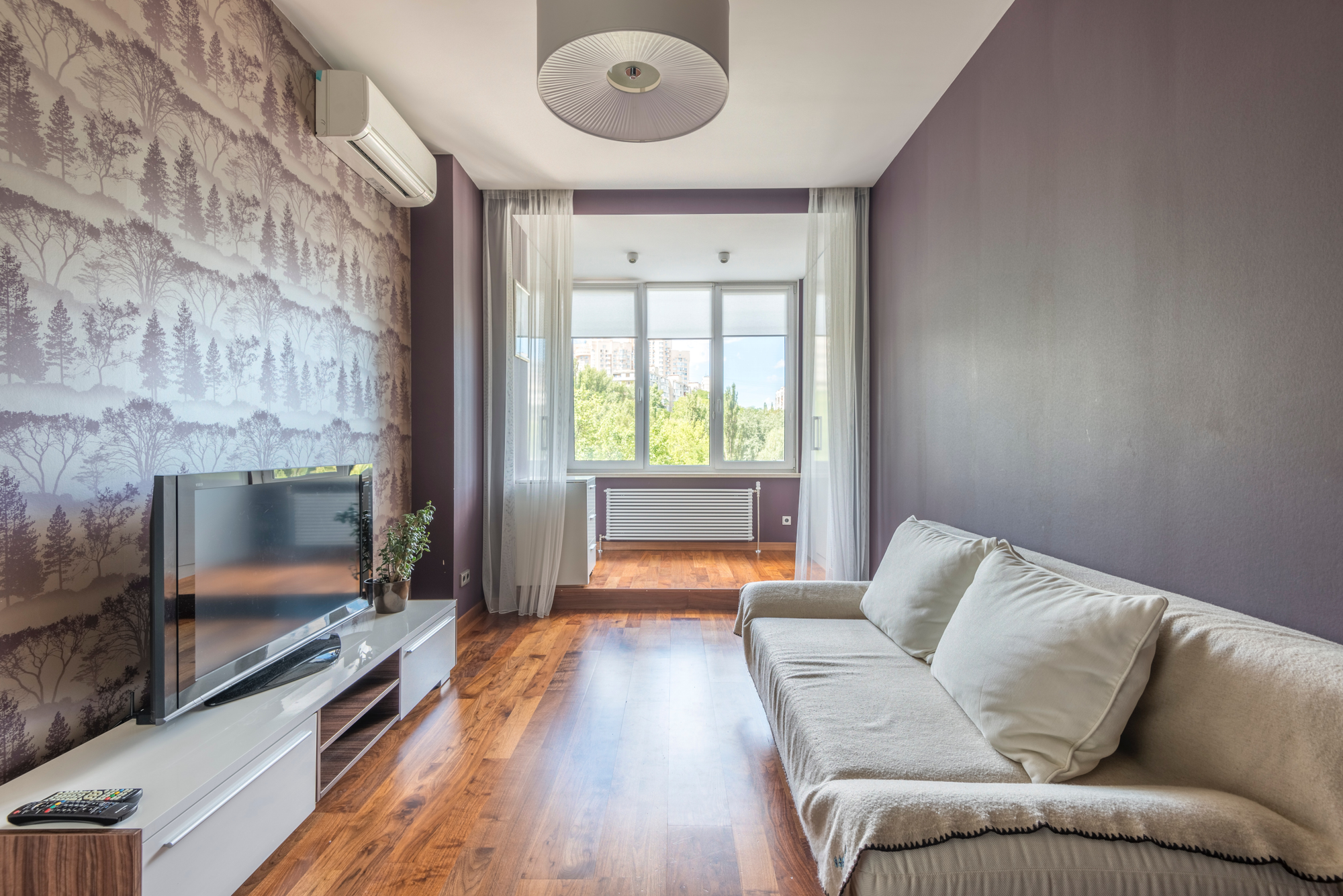
5 Tips for Running Compliant Airbnbs in Canada
It’s important to stay informed about your specific jurisdiction’s laws. While there are many helpful online resources, keep in mind that these websites usually don’t get updated in real-time meaning that they might not necessarily list the latest rules and regulations.
To help you stay compliant, here are a few practical tips and best practices to include in your hosting routine:
- Check the bylaws beforehand to make sure short-term rentals are allowed in your area.
- Double-check if you require any permits. If so, first wait until you have the required permits before listing your space on Airbnb.
- Research the zoning laws to understand any restrictions on how many days of occupancy you can have in any given year.
- Know and understand occupancy limits and make sure that all occupants stay within those limits at all times.
- Familiarize yourself with insurance requirements for hosting on Airbnb Canada. Your insurer will be able to tell you which type of home and rental property insurance is best for you.
5 of the Coolest Airbnbs in Canada to Inspire You
The complexities of the process don’t have to overshadow the potential rewards as the following five examples of Airbnbs in Canada show.
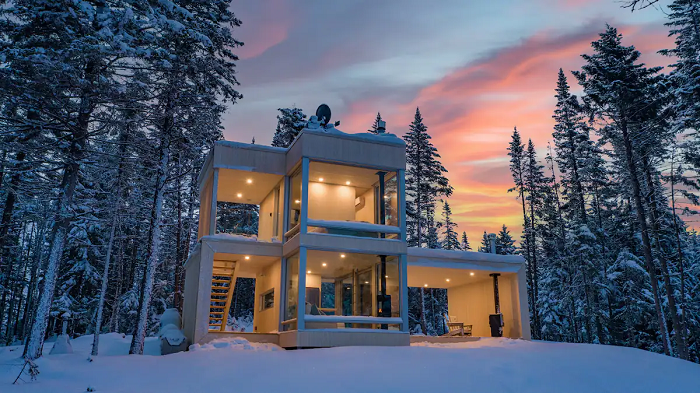
1. Le MICA (Chalets Micro-Element) in Lac BeauPort, Quebec
This listing proves that loads of space isn’t necessarily a prerequisite. With the right amenities and breathtaking views of surrounding nature, a tiny house can make a big impression on your guests. What sets this tiny house apart from similar listings is how its clean lines, minimalist design, and ample use of white, help it to blend in with its natural environment.
Situated near Quebec City, it’s one of the coolest Airbnb rentals and its snowy surroundings can’t take all the credit.
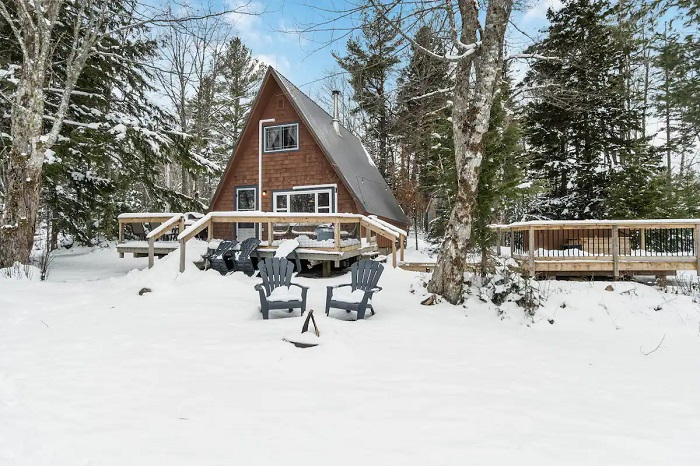
2. Cozy A Frame on quiet East Lake in Middleton, Canada
While you’re planning your Canada stay, you’ll want to consider this one if you’re looking for the idyllic winter cottage feel. This beautiful Airbnb is an A-frame cabin located on the East Lake.
It boasts all the amenities you could possibly want, such as an outdoor hot tub, gorgeous views of the lake, air conditioning, a fire pit, a BBQ grill, and a wood-burning fireplace.
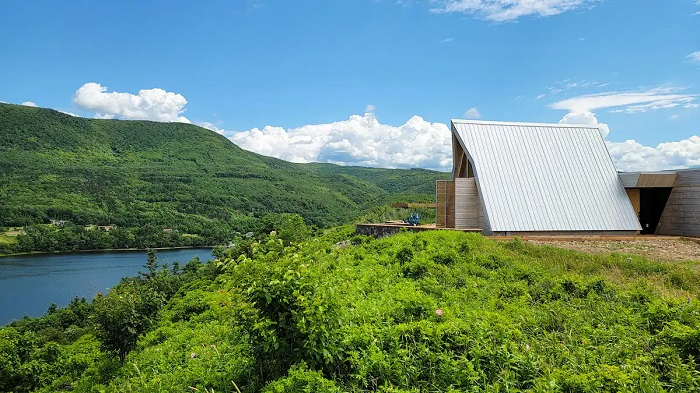
3. Cedar Peak Chalet in Grand Étang, Canada
With its unmatched views of Grand Étang, Cedar Peak is perched on a hilltop. Via the 13-foot window, watch the sun rising over the highlands while enjoying a cup of coffee in the open-concept living area. Relax on the large private deck while watching the sun set over the ocean after a day of exploration. With a home theater, a fully equipped kitchen, and numerous other amenities, Cedar Peak is quite luxurious and truly one of the coolest vacation rentals.
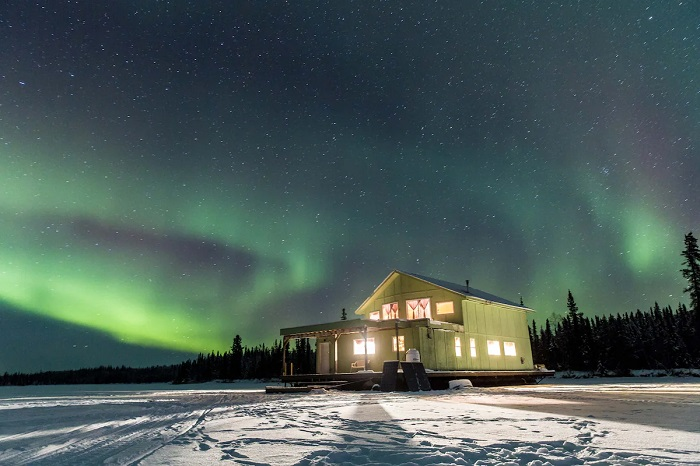
4. Aurora Lodge Houseboat in Yellowknife, Canada
Situated on a private lake, this 2200-square-foot houseboat known as the Aurora Lodge offers front-row seats to the Aurora right outside its doors. A twenty-minute drive outside of Yellowknife, there are two rooms in the lodge, each with a queen-size bed and heater.
The kitchen, bar, and lounge area with a wood-burning fireplace are all part of the living space. Multiple decks and the whole lake are available for viewing auroras. The property is completely off the grid.
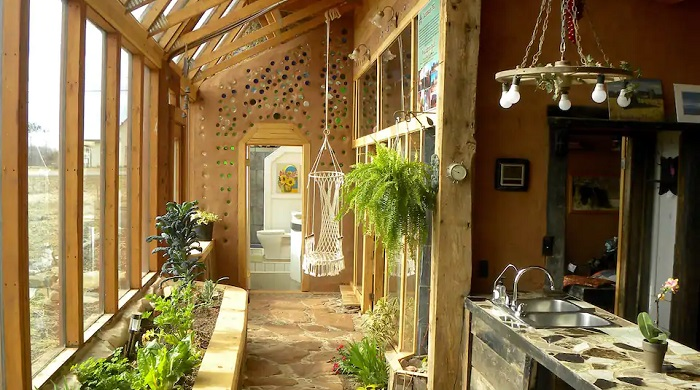
5. A Unique Earth Home in Wellington, Canada
Escape to the Island’s only sustainable retreat and immerse yourself in nature’s embrace. This unique Earthship home offers a harmonious blend of comfort and eco-consciousness, nestled just moments away from pristine waters, red sand beaches, and scenic trails.
With room for up to six guests, including a cozy loft and pull-out sofa, this welcoming sanctuary provides a serene respite only a short 15-minute drive from Summerside’s vibrant city life. Your stay promises not just relaxation, but inspiration, as you reconnect with nature in a truly unforgettable way. Welcome home to an experience unlike any other.
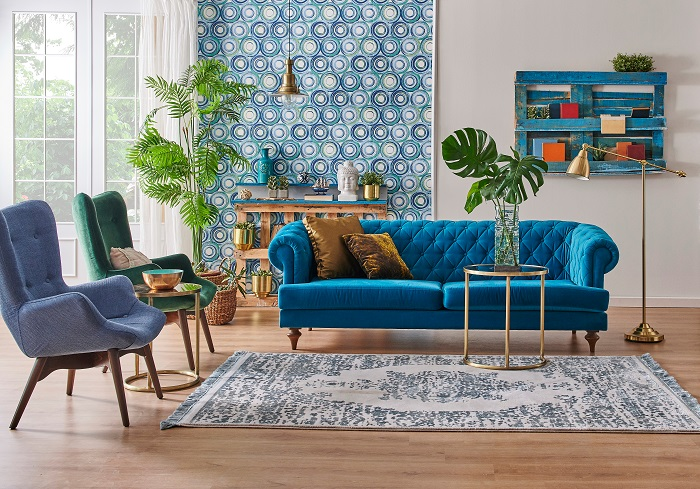
Building a Profitable and Compliant Airbnb Business in Canada
Canada is a magical place. From national parks to golf courses to ocean views to city breaks, the country has loads to offer the rest of the world. Offering all the amenities, though, will be in vain if you don’t stick to the basics and respect the local regulations and tax requirements.
It’s important to remember that operating an Airbnb business in Canada involves more than just listing a property and collecting rent. In addition to delivering a memorable guest experience, hosts also have the responsibility of staying aware of any changes in the law relating to vacation rentals in Canada.
Plus, as each province and city has its own set of laws for vacation rentals, what worked for your apartment in one city won’t necessarily generate the same results for an Airbnb rental in a different location.
In addition to covering all your legal and regulatory bases, why not automate the rest of your rental operations?
Vacation rental software like iGMS can help you manage the day-to-day more smoothly and efficiently. It can help you in:
- Synchronizing reservations across multiple platforms to eliminate double bookings.
- Using the unified inbox to organize your messages into a single feed to ensure prompt replies.
- Securely processing payments via integration with Stripe.
- Creating essential reports on your business results within minutes.



